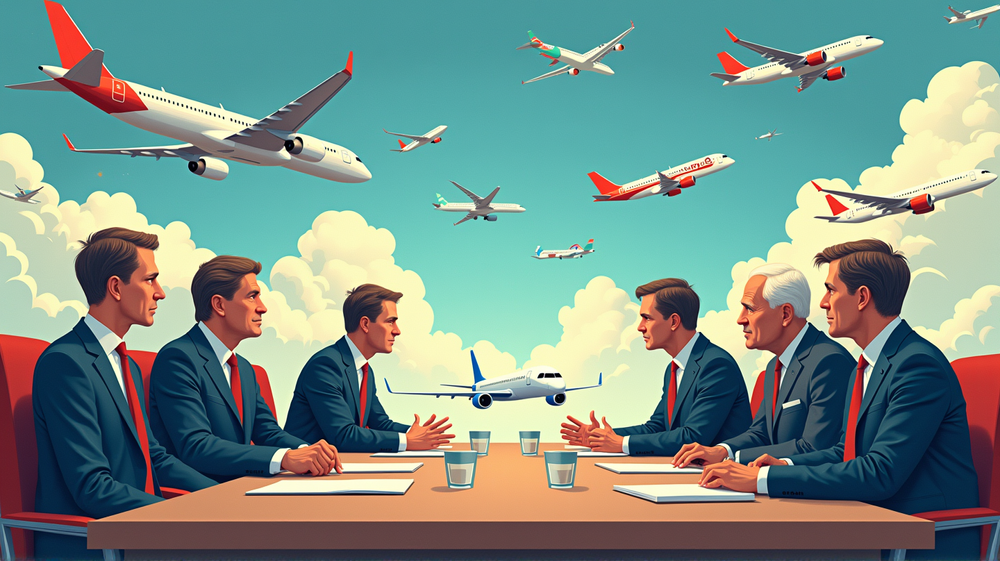In a significant international appeal, five countries along with the European Union and global aviation giants have voiced strong opposition to the Trump administration’s proposed tariffs on imported airplanes and parts. As complex trade negotiations unfold, the global aviation industry stands at a critical juncture.
The Call for Continuity
Reports from Washington reveal a collective appeal from countries like Canada, China, Japan, Mexico, and Switzerland, united with the EU in their request for the U.S. to reconsider its stance. Their shared concern is clear: imposing tariffs could disrupt established supply chains and impact the seamless production of airplanes globally. According to Reuters, the airline and planemaker consortium is urging a return to the tariff-free environment enabled by the 1979 Civil Aircraft Agreement, which greatly benefitted the U.S. aerospace industry with a $75 billion annual trade surplus.
The Economic Stakes
Adding a layer of urgency to these appeals are recent data and transactions highlighting the intertwined nature of the aviation sector’s economy. For instance, Mexico reported \(1.45 billion in exports to the U.S. in aircraft parts, a fraction of billions in trade moving back and forth. Concurrently, the EU noted receiving U.S. aircraft exports worth nearly \)12 billion and exporting $8 billion in return. Tariffs jeopardize this balanced exchange critical to all stakeholders involved.
Boeing’s Strategic Perspective
Boeing, a major U.S. planemaker deeply invested in maintaining a competitive edge, has taken a proactive stand by invoking its recent trade agreement with Britain. This deal promises a tariff-free exchange model reflective of Boeing’s vision for broader international trade deals. Boeing accentuates the critical need for collaborations that bolster duty-free practices to aid in weathering the storm potentially unleashed by new tariffs.
Labor’s Complex Stance
Interestingly, the labor force presents a divided arena. The United Auto Workers union, representing a sizable portion of aerospace employees, has expressed support for tariffs, attributing them to safeguarding jobs amidst declining employment numbers within the sector. However, contrary voices like JetBlue Airways urge stability in trade policies to avoid destabilizing established systems essential for flight operation.
Broader Implications
Robin Hayes, CEO of Airbus Americas, has stressed that an entirely domestic supply chain isn’t viable for today’s global market. Such insights align with broader business concerns that tariffs might not only escalate ticket prices but could also compromise aviation safety and innovation due to stifled international collaboration.
As negotiations continue, the world watches closely, assessing how such policy shifts could redefine the contours of global aviation trade and economic partnerships.












